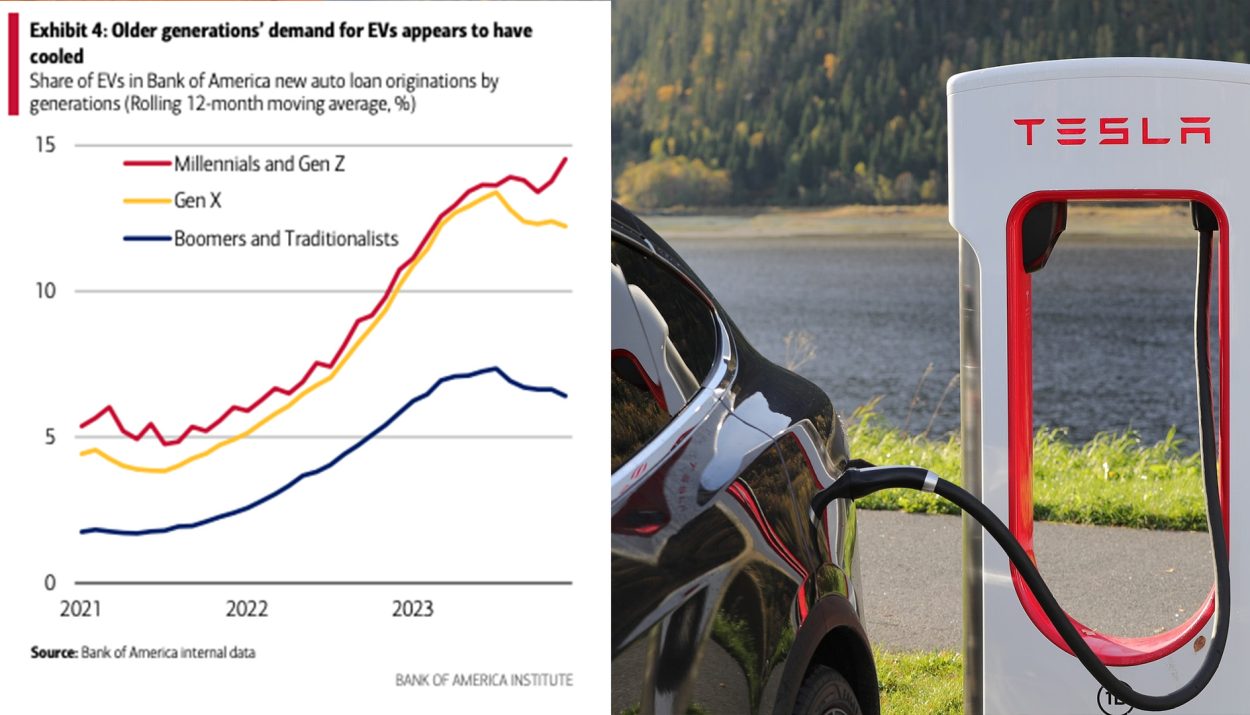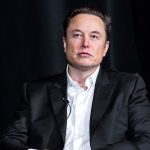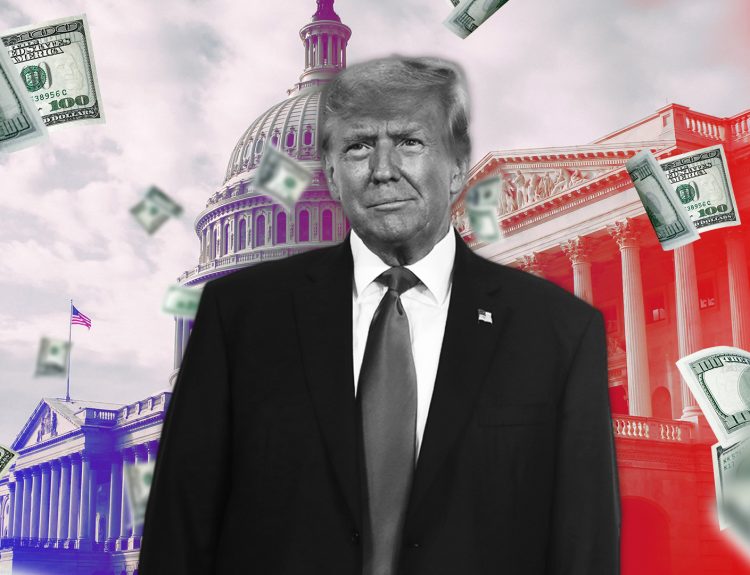Electric vehicles were once the future of road transportation. They offer an eco-friendly means to travel with the same performance as regular cars. So, it makes sense that everyone hopped on this innovation. However, reports show people are losing interest in these cars.
The Bank of America released its sales predictions for electric vehicles through 2030. This report showed a steady decline in interest in EVs because of Baby Boomers. How did the older generation make such a significant impact? How will it affect the future? Let’s explore the data together.
A ‘Relatively Soft’ Market – BofA
The Bank of America Institute published a report on electric vehicles led by senior economist David Tinsley. The analysis showed that demand has begun to cool off in the second half of 2023 after tripling in 2021. Sales surged during this period by 160% and led to a whopping 16.5 million in profit.
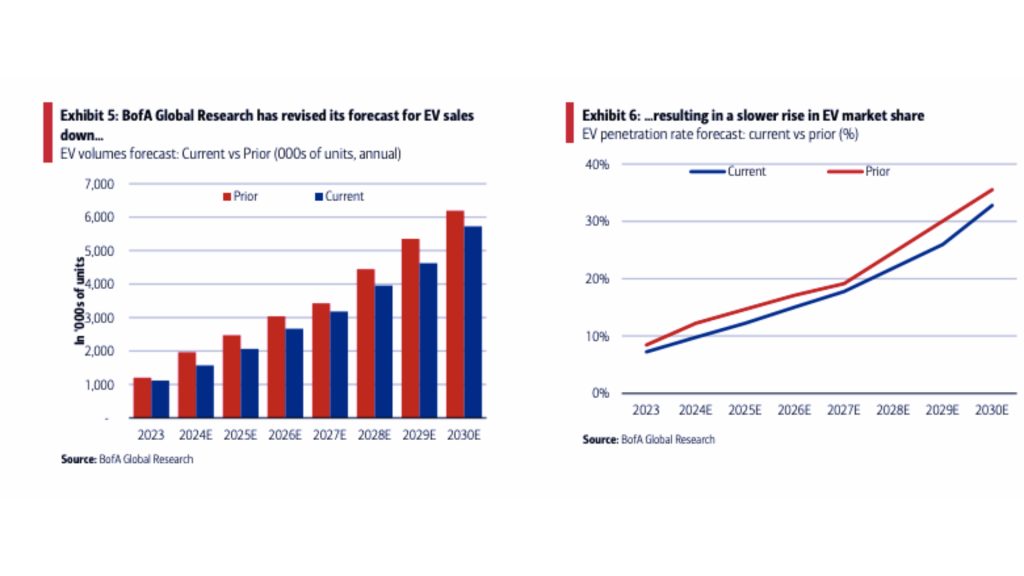
However, BofA says the EV market “still appears relatively soft.” it has many problems holding it back, like competition from China. But, David Tinsley narrows these issues down to three main problems in the BofA report.
The Three Main Killers Of Electric Vehicles
According to Bank of America, price, limited choice, and “range anxiety” harm the EV market. People can’t afford electric vehicles even if they love the technology. At the same time, others are unhappy that there aren’t many options.

Range anxiety on the other hand is the fear of getting stranded in an electric car. This can be because your battery ran out or your car broke down. It’s also worth mentioning that this fear is justified. Recently, Tesla users in Chicago were stranded as their cars refused to work.
Electric Vehicles Are Unreliable In The Cold
The Chicago cold in January made life painful for many EV owners. The news showed Teslas running out of power at a temperature of -9F (-23C). This problem got worse as vehicle owners realized they also couldn’t charge their cars properly. Very frustrating!
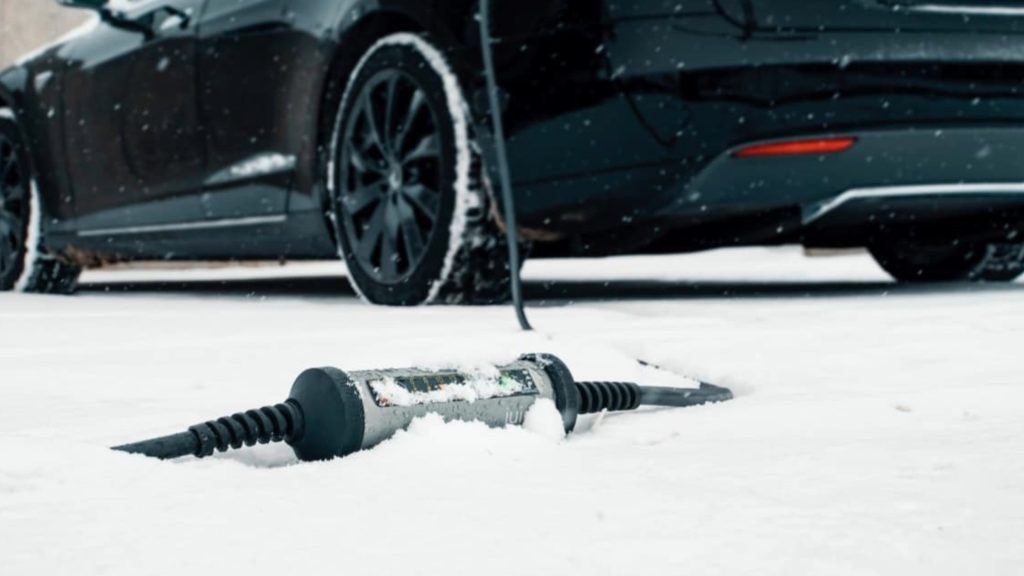
Electrons move slower in batteries during cold weather, and the port latch may also freeze in place. These two issues combine to produce a very slow and inconvenient charge. Also, since the electrons travel poorly in the cold, the range lost can be up to 36%.
Older Americans Are Responsible For The Sales Decline
The younger generation is more committed to a greener and healthier future. However, reports show that baby boomers have more buying power. Approximately 53.6% of people who own electric cars are 55 or older.
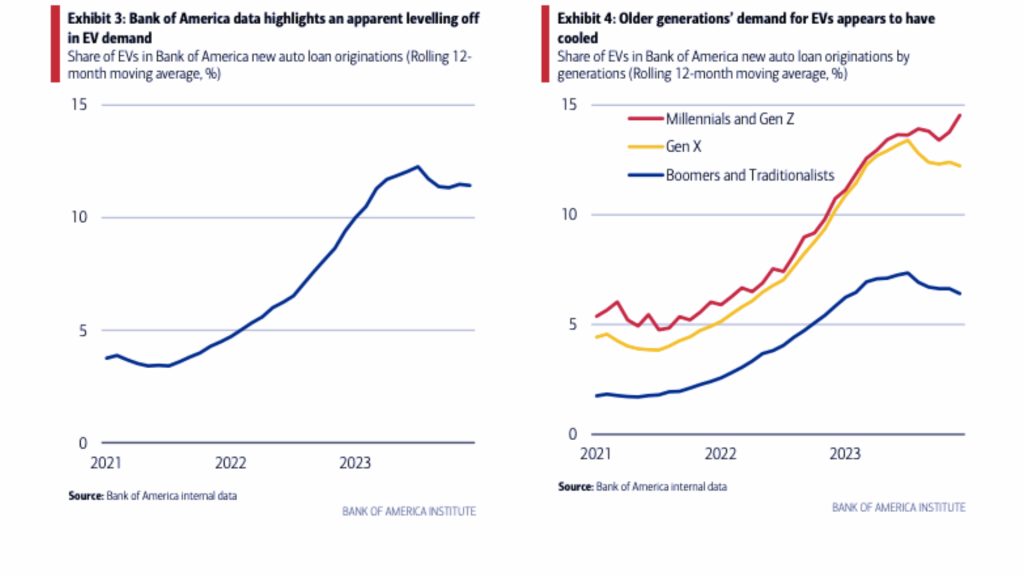
These older Americans tripled the sales of EVs between 2021 to 2023. And as the trend died down, so did their interest. They realized that these modern cars offer less functionality than traditional ones. So, they aren’t worth the cost.
EVs Are Just Too Expensive
Now, electric vehicles are becoming less popular because of their unreliability. But, their biggest problem is pricing. Reports show that only 20 EV models sold for less than $45,000 in the US. This price makes these cars a luxury compared to other popular brands that retail for well under $30,000.
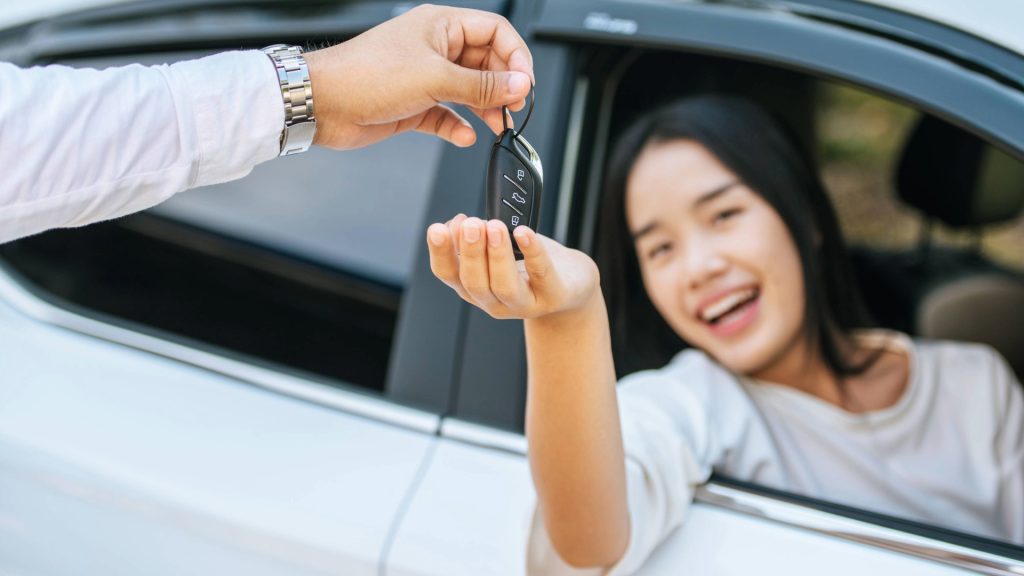
Experts think that EV manufacturers are missing out by only producing expensive models. A cheaper version might mean more sales and recognition. If they don’t adapt quickly, China might take over.
China Is Coming!
Affordability is the biggest problem with electric cars, and Chinese companies aim to fix that. Reports show that automakers in China are releasing electric models that sell for less than $15,000. These are bound to take over the American EV market if proven to be as reliable as Electric cars in the US.
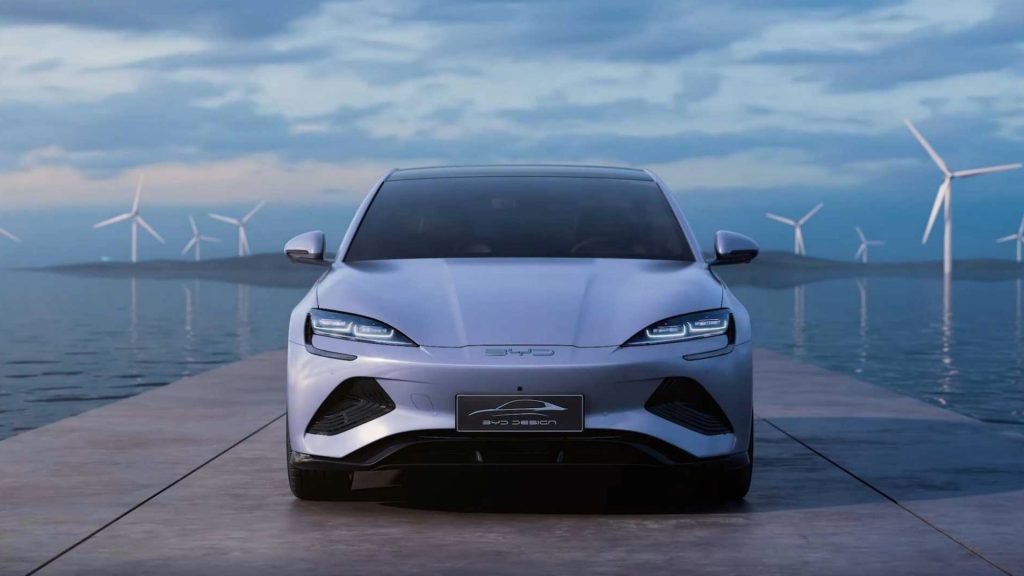
Right now, vehicles under $15,000 are either used or older models. So, what happens if China succeeds in bringing their creation to American roads? This means people can get a Tesla lookalike for the cost of a 2017 Toyota Camry. It will either force US companies to innovate or go out of business.
Tax Incentives Helped Boost The EV Industry
It’s worth noting that tax incentives played a crucial role in boosting the EV Industry. The Inflation Act gave buyers a tax break for vehicle purchases over $7,500. This system made it easier to get a new electric vehicle quickly.

However, people are getting worried. The upcoming election has people questioning whether the next government will continue supporting EVs. This fear heightened as the government removed the tax incentive for several models.
Hybrid Cars To The Rescue?
The Bank of America predicts a sad year for EVs, but Hybrids may help fill the gap. Reports show that the market share of Hybrid Cars has risen over the past year and a half.
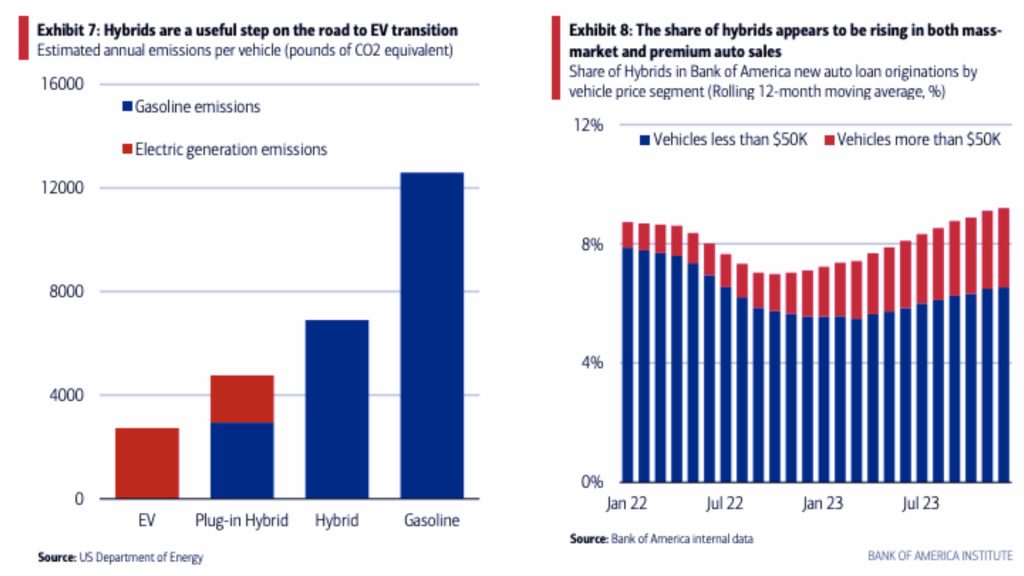
Although they aren’t as eco-friendly, they have less carbon emissions than traditional vehicles.
So, What’s The Future For EVs?
According to the Bank of America, EVs won’t trend anytime soon. They are expensive and yet unreliable in extreme conditions. Even the recent Cyber truck went viral for needing help from a Ford truck.
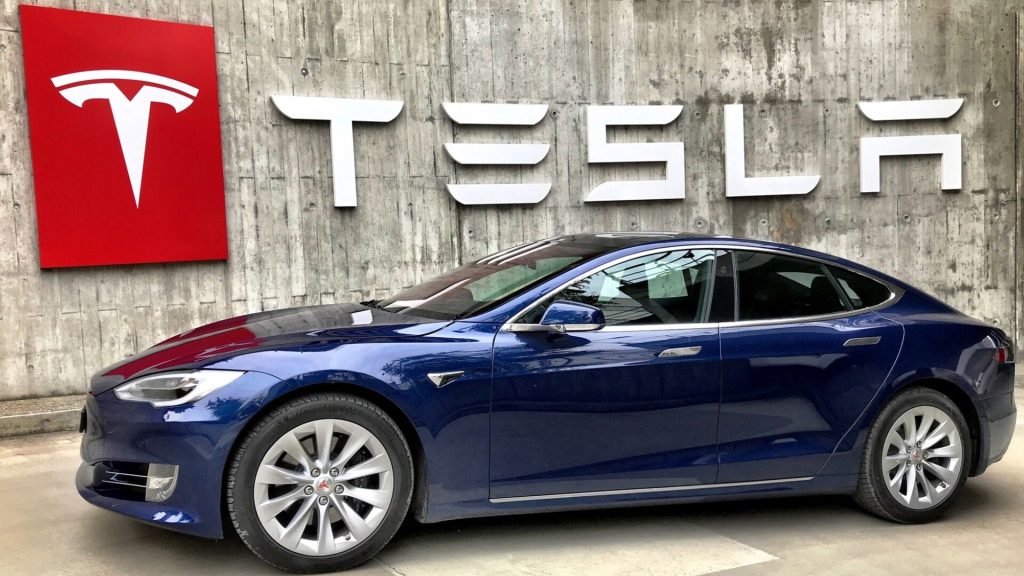
Nevertheless, Americans are still willing to buy these cars, if only they were cheaper. Sadly, this downward trend in sales shows no sign of slowing down.
Cheaper American EVs Already Exist
Some American brands already have affordable models for the public. Will their efforts save the declining EV market?
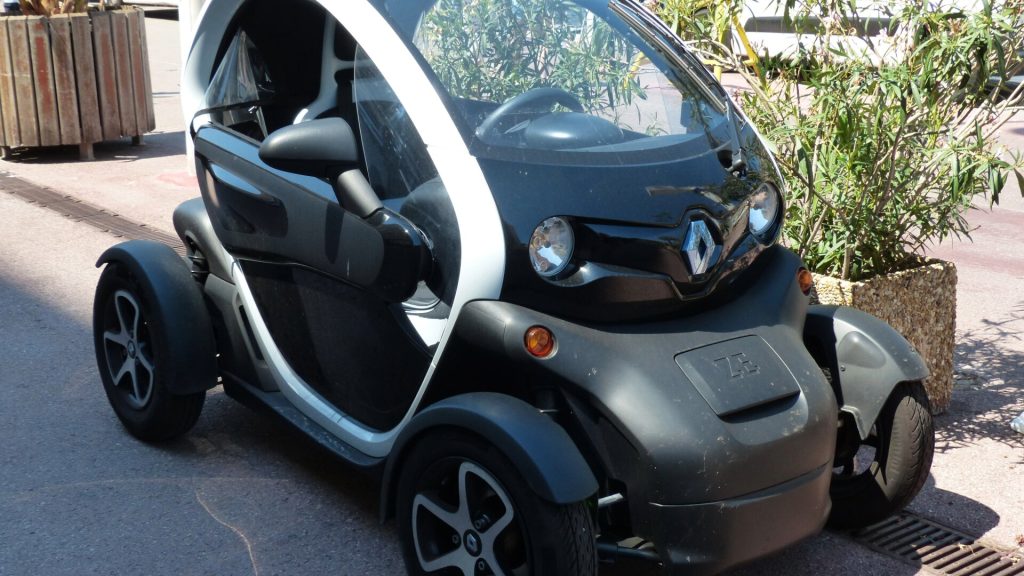
The 2023 Chevrolet Bolt EV 1LT is a good example. The car retails at around $28,000 and offers decent performance. Others also fancy the 2023 Nissan Leaf that sells at $30,000. However, it’s worth noting that low prices are not enough. The market needs affordable and functional EVs. Currently, the cheaper models simply aren’t as good.
The EV Industry Needs Help Or China Might Take Over
If America fails to fix the problems with the EV market quickly, China might take over. Chinese manufacturers are offering American functional EVs for less than $15,000.
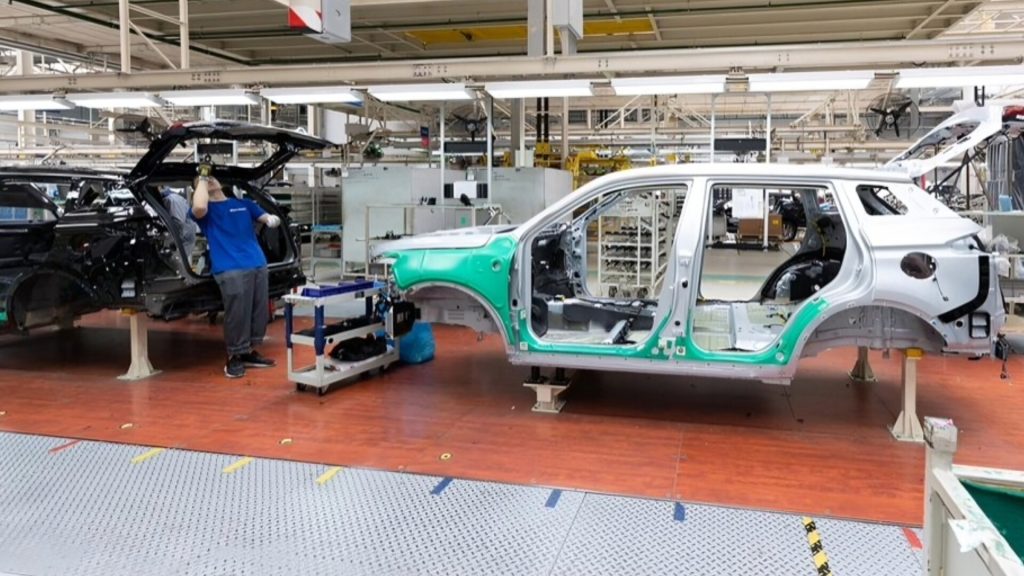
This lets drivers get modern electric vehicles for far less than the usual cost. On the other hand, hybrid cars are rising in sales. It could just be another trend or people prefer a healthy balance between eco-friendliness and functionality.

